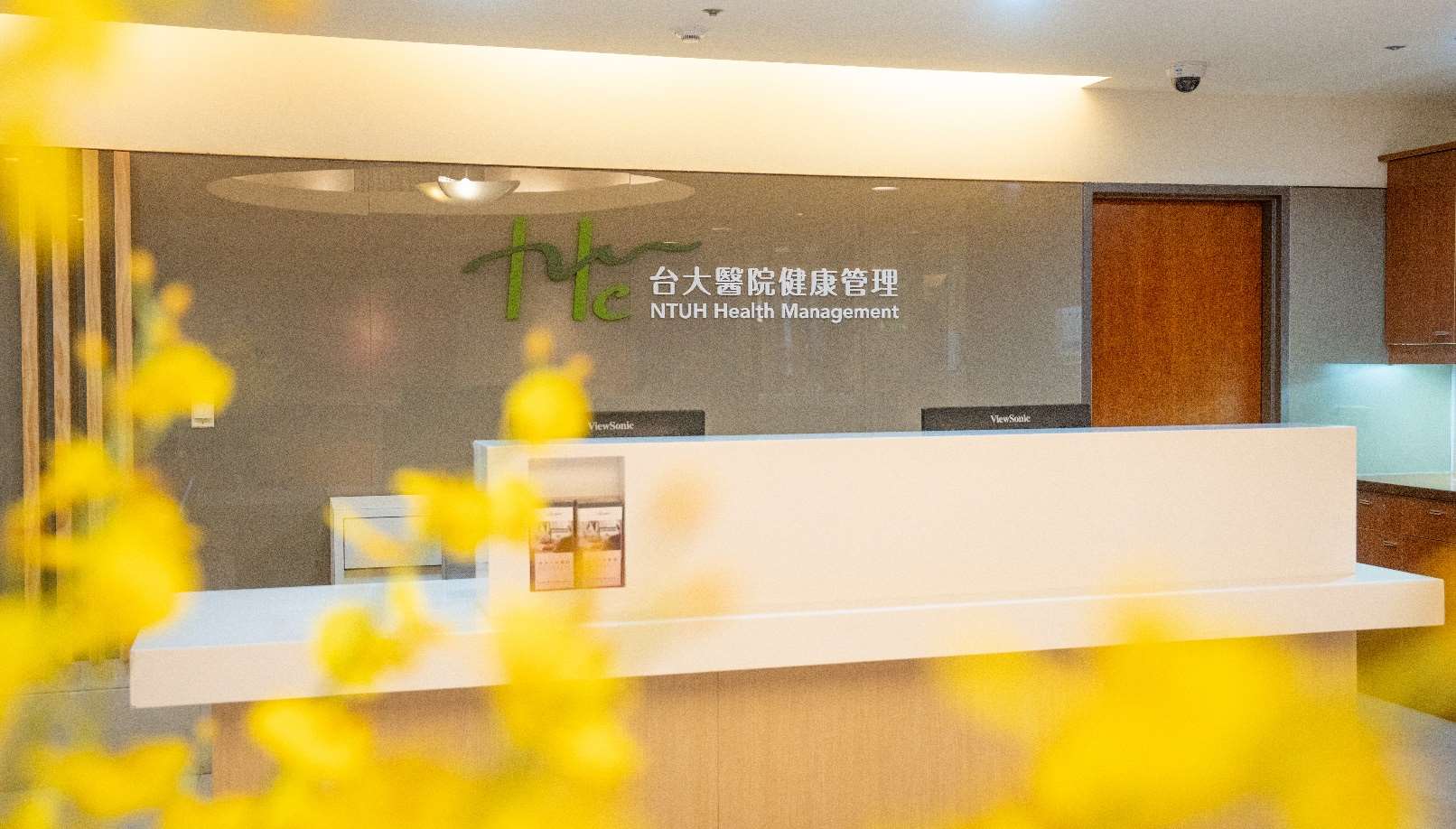
The NTUH Health Management Center (Photo by National Taiwan University Hospital)
Nearly 80% of death in Taiwan are related to chronic diseases. Such diseases in the preclinical stage have almost no symptoms that can be flagged as issues, adding to the challenge of prevention and subsequent treatment. As a leading healthcare system in Taiwan, the National Taiwan University Hospital (NTUH) has built its facility and platform dedicated to health management ranging from risk assessment and response to surgical simulation using virtual reality (VR) technology.
Personalised Health Management Platform with Track Records and Risk Indicators
Chronic diseases, in many cases, are linked to one’s lifestyle (e.g. diet, exercise, sleep, smoking) that can be traced back to. NTUH has therefore introduced a health management platform that uses wearable devices, mobile and environmental monitoring devices to collect personal health data, which, when combined with health-check data, creates a complete health profile for further analysis. NTUH is also leveraging big data and machine learning techniques to structure a risk prediction model for chronic diseases.
NTUH shared how Parkinson’s disease can be assessed, for instance: the team collected data on one’s hand movements, gait, speech, etc. for the hospital’s AI model to evaluate the risk, followed by advice from healthcare professionals based on the risk assessment results, for the purpose of health promotion and health management.
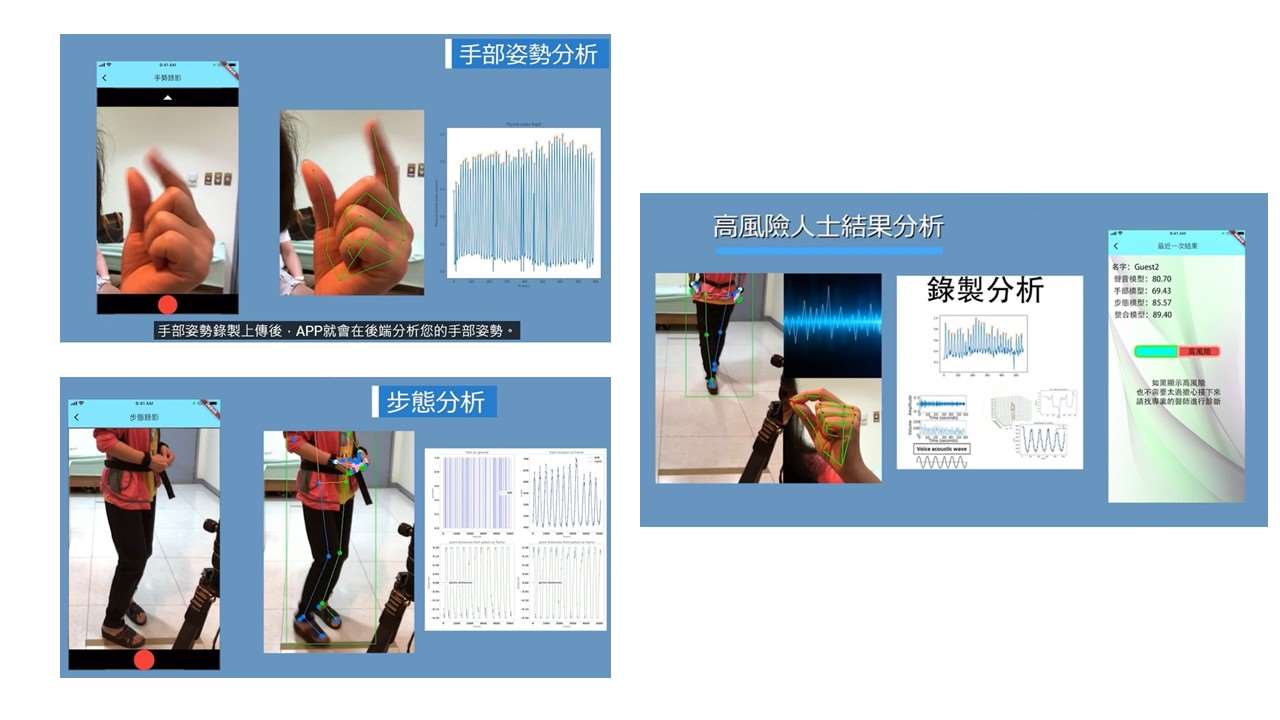
Data collection from hand movements, gait and speech for Parkinson’s disease risk assessment (Photo by NTUH)
Integrating Personalised Health Data to Spark Industry Collaboration
The health management platform and risk assessment system NTUH has invested in, as it develops to scale, is finding opportunities for industry collaborations such as the following.
1. Wearable devices: NTUH plans to solicit user feedback and work with wearable device developers and environmental monitoring device providers to collect data and co-develop products.
2. Data construction and analysis: Collaborate with infrastructure-as-a-service (IaaS), platform-as-a-service (PaaS), and artificial intelligence-as-a-service (AIaaS) providers to ensure data security and management, and to develop predictive models and their applications.
3. Health information: Develop partnerships with the media to provide the most up-to-date and accurate health information to the public.
4. Health promotion: This includes wellbeing and lifestyle, and even games for health and insurance plans.
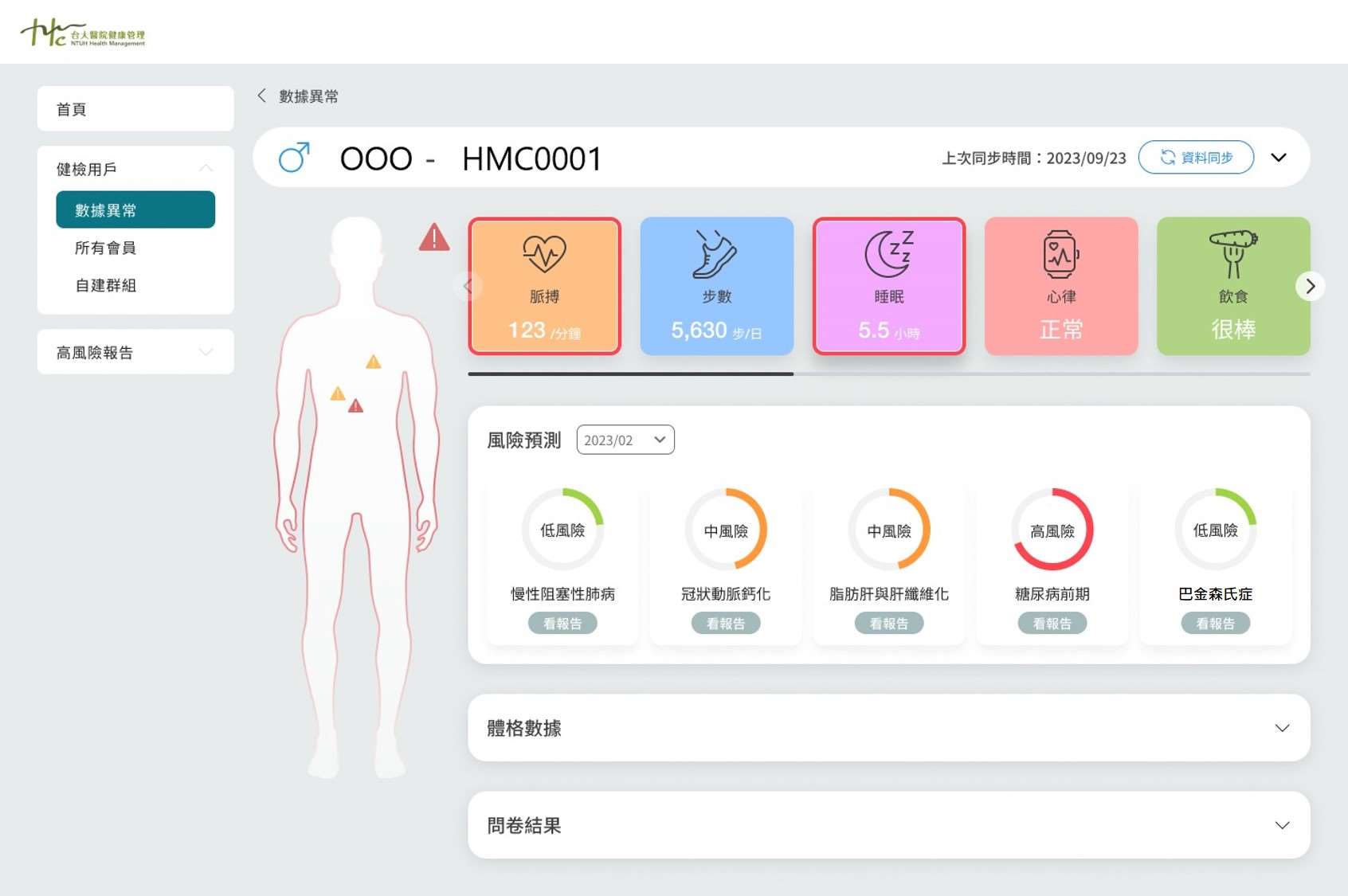
The personalised health data and chronic disease risk assessment platform helps one better manage health status (Photo by NTUH)
★★★More by National Taiwan University Hospital
◎AI-assisted Scheduling System Creating Rosters in Minutes
NTUH’s Health Management Center adopts AI-assisted scheduling system to address the challenges of burnout and reduce the time spent manually planning shifts. Once ‘business rules’ such as leave entitlement, employee specialties and preferences are logged, the system generates shift schedules according to pre-defined conditions.
This scheduling system has alleviated the scheduling workload, met the needs of work-life balance and reflected fairness.
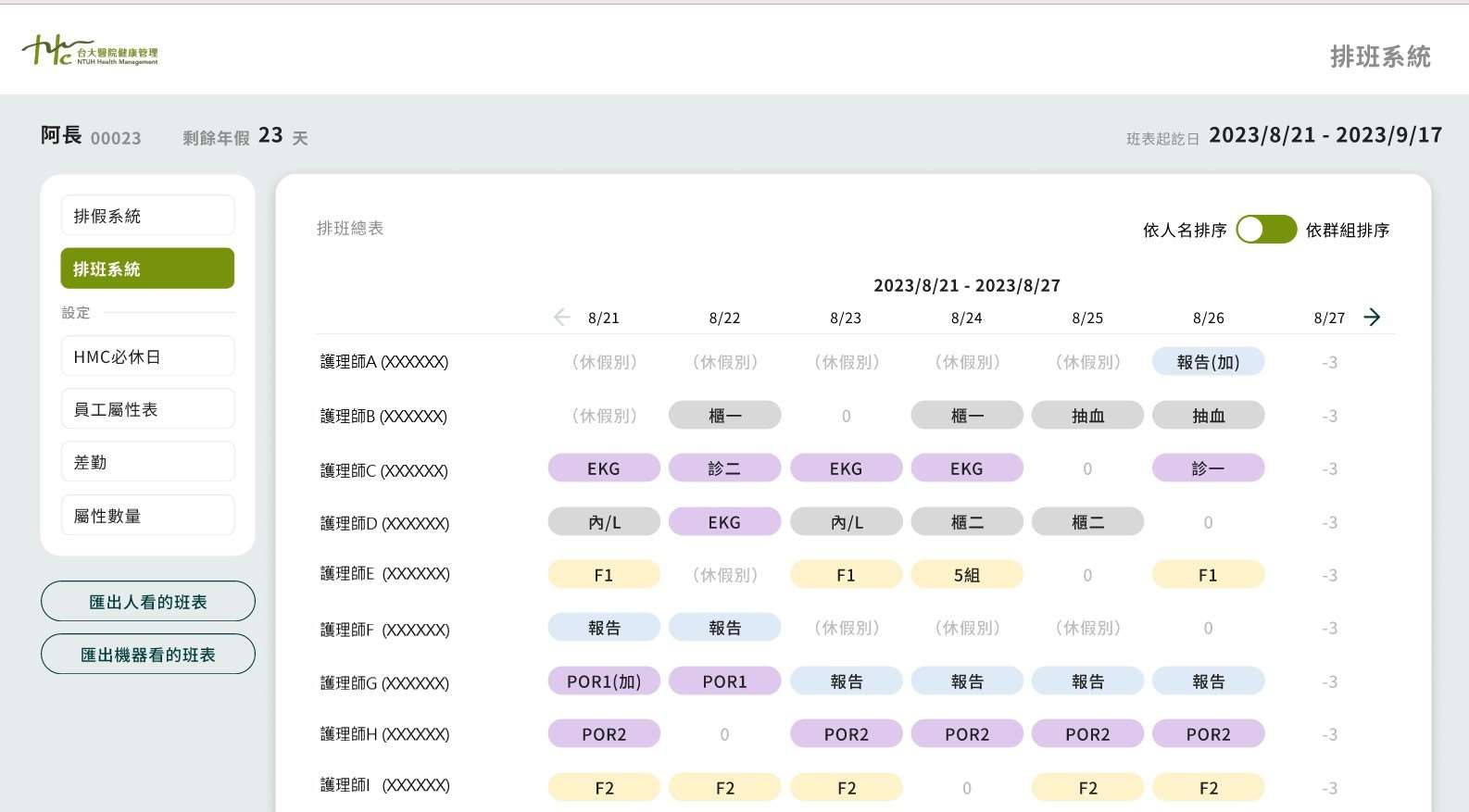
AI-assisted scheduling system by NTUH Health Management Center (Photo by NTUH)
◎VR Surgical Simulation for Training and Telemedicine
NTUH's VR surgical simulation platform can convert CT and MRI images into 3D representations. The next step is set to create a ‘digital twin’ to simulate real situations for preoperative assessment and doctor-patient communication. The team is keen to apply VR technology to the development of turning medical images into digital twins. The hospital expects the platform to be implemented in other healthcare facilities and used for medical education.
As part of NTUH’s ‘metaverse’ project, a large language model (LLM) will be trained for use in disease risk and progression assessment required by telemedicine. NTUH is now verifying all relevant data with a view to establishing partnerships with hospitals, telemedicine providers, insurers and primary care facilities.
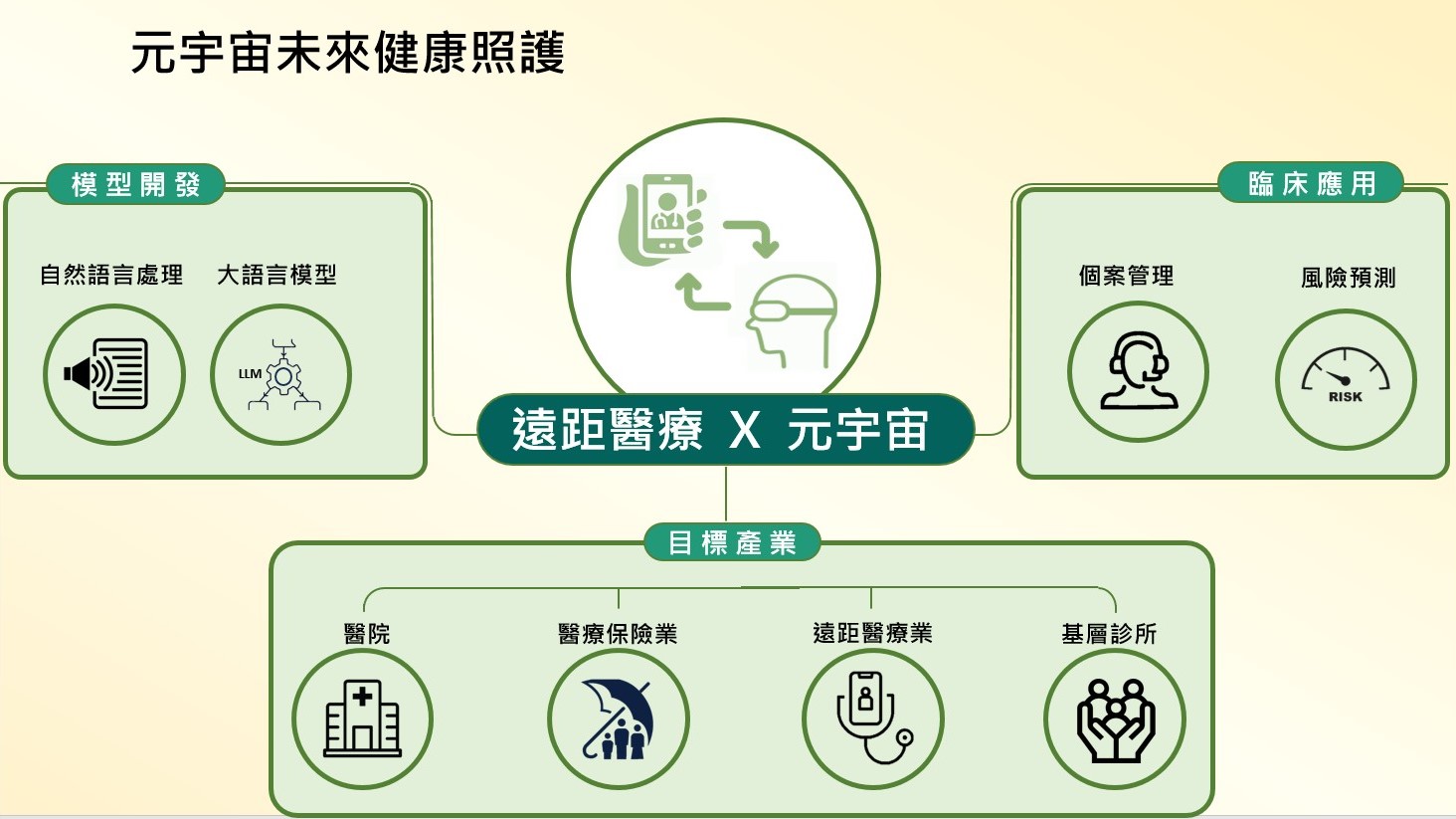
NTUH’s Metaverse project focuses on health risk assessment and management (Photo By NTUH)
B2B Opportunities with National Taiwan University Hospital
Digital Health
| Products/Solutions | Partnership wanted |
|---|---|
| AI-assisted scheduling system | Software and product sales |
Precision Medicine
| Products/Solutions | Partnership wanted |
|---|---|
| Personalised health data and health risk assessment system | Technology transfer; product development |
| VR surgical simulation | Product development; research collaboration |
National Taiwan University Hospital at Healthcare+ Expo 2023
- Thursday, 30 November to Sunday, 3 December
- Booth No. N601a | 4F, TaiNEX 1
